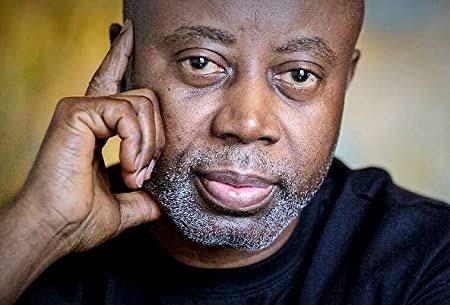The African Centre for Media and Information Literacy (AFRICMIL) has recommended early detection and exposure of mismanagement or theft of public funds and other illicit acts to combat corruption in the country.
The group said the proactive strategy is an effective strategy in the fight against corruption.
The Coordinator of the centre, Dr Chido Onumah, said this on Saturday in Ilorin at separate training for stakeholders and Community Based Organisations (CBOs) in Kwara South, Central and North senatorial districts.
The training has its theme as “Community Based Organisations as Change Agents in Promoting Whistleblowing”.
Onumah, who was represented by the Programme Manager of AFRICMIL, Mr Kolawole Ogunbiyi, said that whistleblowing had proven to be the most direct method of exposing corrupt acts.
He said that the rural dwellers felt the pains and gains of both poor and good governance more, hence the need to bring training to the rural communities.
The coordinator, said that the centre was ready to work with CBOs at the grassroots to encourage people to adopt the culture of whistleblowing as a way of fighting corruption in Nigeria
He commended MacArthur Foundation for its support while also appreciating the CBOs and other participants at the meeting.
“Since 2017, AFRICMIL has been working on a project tagged Corruption Anonymous (CORA), supported by the MacArthur Foundation.
“The project is designed to build public confidence and support for the whistleblowing policy of the Nigerian government.
“Creating awareness and sensitising the public on the importance of whistleblowing as tool to fight corruption, advocating honest implementation of the policy and ensuring effective protection for whistleblowers are the aims of the project.
“We have added another plank of engagement, which aims at institutionalisation of whistleblowing as a vital mechanism for transparency and democratic good governance in Nigeria.
“We are morally and legally bound as citizens not to keep quiet to any act of corruption or wrongdoing when we see one,” Onumah said.
He called on Nigerians to expose abandoned projects and other corrupt acts by visiting www.partnersunited.org and clicking on whistleblowing form or visit https://www.africmil.org/.
In Kwara Central, Mrs Christy Abayomi-Oluwole, the CEO, Global Hope for Women and Children Foundation (GLOHWOC), said there was need to speak up against corruption, misappropriation of funds, bad governance, sexual and gender based violence.
Abayomi-Oluwole in an open discussion with participants on the effects of constituency projects on the rural dwellers expressed dissatisfaction with negative effect of norm of silence by whistleblowers.
Dr Oluwabunmi Niyi-Gafar of the Dept. of Jurisprudence and International Law, University of Ilorin, speaking on the culture of silence and ‘she or he is our own’ mentality of Nigerians, condemned the silence of the people owing to ethnicity and religious bias.
Niyi-Gafar urged resident participants to rise beyond ethnic, religious and gender biases to every act capable of shortchanging Nigeria’s development and common good.
At Ojoku in Kwara South, His Royal Highness, Olojoku of Ojoku, Oba Abdulrasaq Afolabi Iyiolasemi III, commended AFRICMIL for deeming it fit to sensitise the community on whistleblowing.
Oba Afolabi charged the public on good character, saying that curbing corrupt practices is everyone’s business.
He called on the people to unite in the fight against corruption while reporting anyone or anything that jeopardises communal development.
The Executive Director of Centre for Community Empowerment and Poverty Eradication, Mr AbdulRahman Ayuba, one of the resource persons while speaking at the meeting at Bode Sa’adu, Kwara North, said that it was important for citizens to speak against every wrongdoing.
Ayuba also said that the passage of the Freedom of Information (FoI) Act has empowered citizens to ask questions to demand for accountability from government officials.
One of the community leaders, Alhaji Ibrahim Baba, appreciated AFRICMIL for taking it upon itself to introduce whistleblowing at the community level.
Baba said the policy would help reduce corruption in the society, saying government should be open to providing information when necessary, especially when projects are awarded, to enable citizens monitor its implementation.
One of the participants who simply identified herself as Mufahat, speaking with the News Agency of Nigeria (NAN), commended the organisers for the programme.
Mufahat said that there was need for employment and empowerment opportunities for the youths in order to avoid bad characters.
She urged the participants to speak out against all forms of impunity.
Another participant, Ariyo Fatimah, tasked the government on provision of more healthcare centres, water supply and adequate electricity.
Fatimah said that corruption was denying ordinary citizens their basic rights to education and social infrastructure.
She however urged all those involved in corruption to stop the evil act.
NAN also reports that Mrs Jumoke Olaoye, the Kwara Coordinator, National Human Rights Commission, among other dignitaries, attended the event.
NAN


